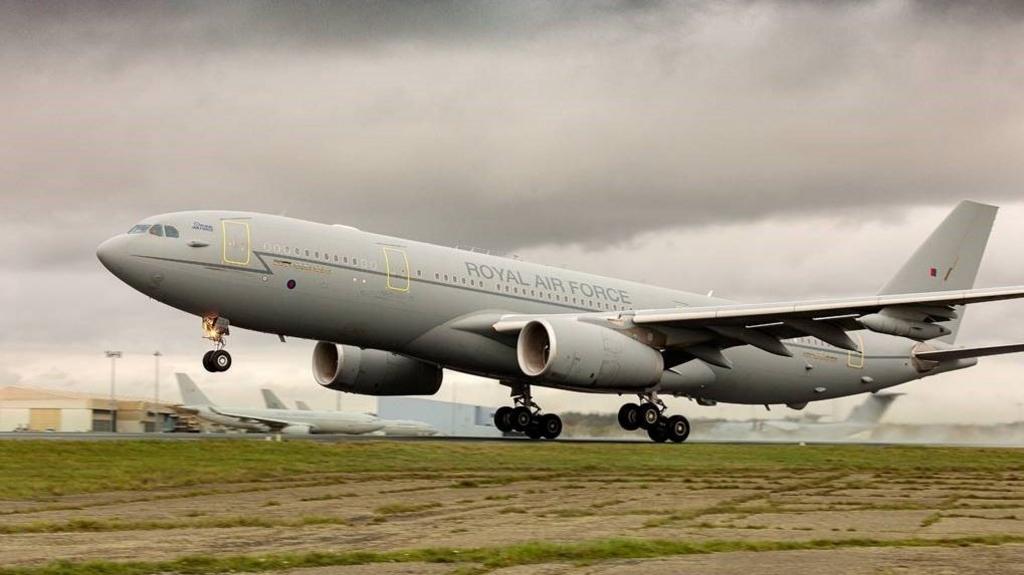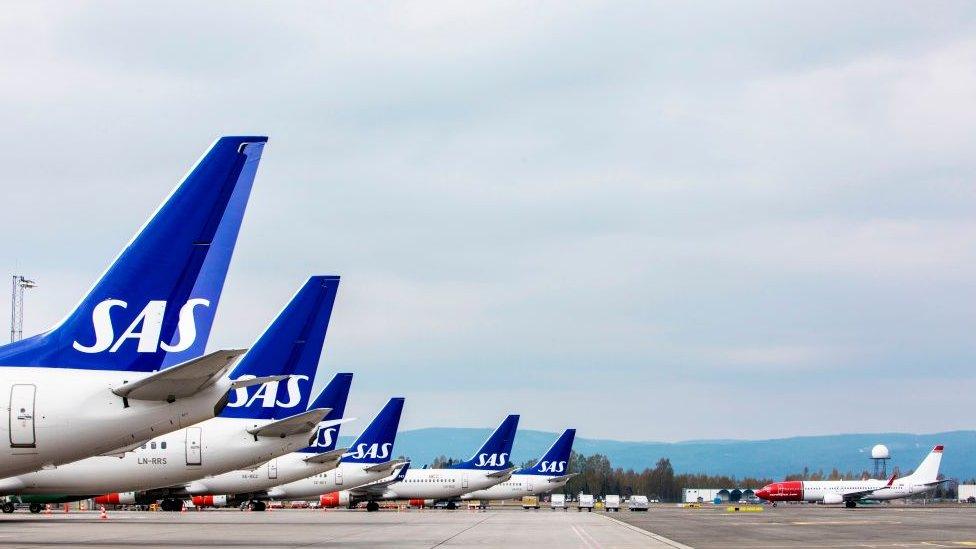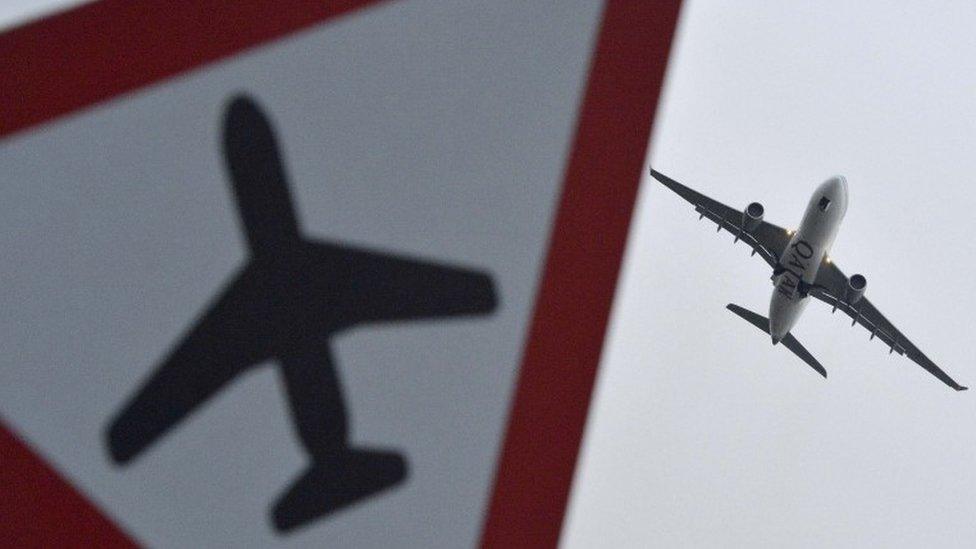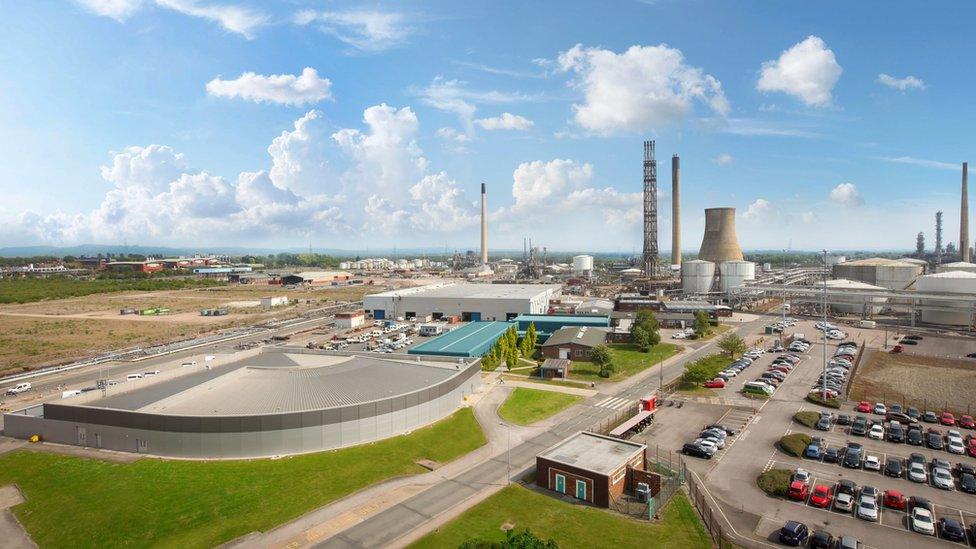Climate change: Household rubbish to be turned into jet fuel
- Published

Waste gases from Port Talbot steelworks could be used for "guilt-free flying"
Waste gases from a steelworks and household rubbish could be used to fuel aeroplanes for "guilt-free flying".
It comes as five projects have been awarded a share of a £165m UK government fund.
The projects will cut CO2 emissions by an average of 200,000 tonnes a year, external, once fully up and running.
The Department of Transport said the project will also produce 300,000 tonnes of sustainable aviation fuel a year.
The UK government said this was "enough to fly to the moon and back about 60 times" and equates to around 14,331,300 miles (23,063,991 km).
One of the projects will be based at Port Talbot steelworks and will convert steel mill off-gases into fuel.
Another scheme will develop a plant creating duel using carbon captured from a gas-fired power station and hydrogen made from renewable electricity.
The other successful projects include sustainable fuel plants in Teesside, Immingham and Ellesmere Port, which will cover domestic and commercial waste.
UK government Transport Secretary Mark Harper said: "Using waste or by-products to refuel airliners sounds like a flight of fancy, but... it's going to help us make guilt-free flying a reality.
"It's exactly this kind of innovation that will help us create thousands of green jobs across the country and slash our carbon emissions."
A Welsh government spokesman called it "great news", adding: "We are committed to helping create green jobs in the new industries of the future, which will help us deliver our ambition of creating a stronger, fairer and greener economy. This is exactly the type of investment we want to see more of here in Wales."

BEST OF 2022: Check out the best shows from BBC Wales
CELEBRATING WELSH POP: A decade-by-decade romp through the TV archives

- Published14 December 2022

- Published18 November 2022

- Published7 October 2022

- Published10 May 2022

- Published2 January 2022

- Published14 July 2021

- Published15 February 2021
